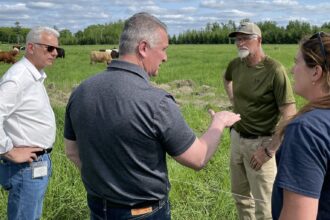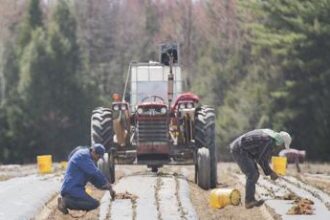In the quiet corners of our daily routines, few decisions carry as much weight as what we put on our plates. Yet this seemingly simple choice—repeated billions of times daily across the globe—has created a food system that stands at a critical crossroads. As global agricultural practices push planetary boundaries to their limits, experts are calling for a fundamental reimagining of how we produce, distribute, and consume food.
“We’ve built a food system that simultaneously manages to leave nearly 800 million people hungry while driving obesity rates to historic highs,” explains Dr. Amara Patel, director of the Global Food Security Institute. “Meanwhile, this same system generates roughly one-third of all greenhouse gas emissions and is the primary driver of biodiversity loss worldwide.”
The complexity of our food challenges extends beyond environmental concerns. Recent analysis from the International Food Policy Research Institute reveals that current agricultural practices contribute to approximately 24% of global emissions, with livestock production alone responsible for 14.5%. These figures become even more alarming when considering that food production uses nearly 70% of the world’s freshwater and occupies roughly 40% of Earth’s ice-free land surface.
As reporting from CO24 News has previously highlighted, the industrialization of agriculture post-World War II delivered unprecedented productivity gains but at substantial environmental and social costs. The consolidation of farming operations has hollowed out rural communities while monocropping practices have depleted soil health across millions of hectares globally.
Canada stands at an interesting intersection in this global conversation. As both a major agricultural producer and a nation where consumers increasingly demand environmental accountability, policy decisions made in Ottawa reverberate throughout our national food system.
“Canadian farmers are caught in a difficult position,” notes Emma Richardson, agricultural economist at the University of Saskatchewan. “They’re being asked to simultaneously increase production to feed a growing world while dramatically reducing their environmental footprint. Without thoughtful policy support, that’s an impossible equation.”
Innovative solutions are emerging across the food value chain. Regenerative agriculture practices—which focus on soil health, carbon sequestration, and biodiversity—are gaining traction among Canadian producers. Meanwhile, plant-based proteins continue their mainstream market penetration, with business analysts projecting the global market to reach $85 billion by 2030.
Food waste reduction represents another critical opportunity. Approximately 58% of all food produced in Canada is lost or wasted, representing an estimated $49 billion in economic losses annually. More troubling still, this waste occurs while food bank usage reaches record highs across the country.
“The most sustainable meal is often the one not wasted,” emphasizes Chef Michael Thomson, who leads a zero-waste culinary program in Toronto. “We need to rediscover the culinary wisdom of previous generations who understood that creativity and resourcefulness in the kitchen isn’t just economical—it’s delicious.”
The transition toward a truly sustainable food system will require coordinated action across multiple fronts. Political leadership must create regulatory frameworks that reward environmental stewardship while ensuring economic viability for producers. Consumers must reconsider consumption habits deeply ingrained through decades of marketing and convenience-focused food culture.
As global agricultural systems face mounting pressures from climate change, population growth, and resource constraints, the coming decade will prove decisive. The choices made by policymakers, businesses, and individual consumers will collectively determine whether our food system becomes a solution to environmental challenges or remains one of their primary drivers.
The question facing us is both simple and profound: Can we find the collective wisdom to transform how we feed ourselves before environmental realities force far more painful adjustments upon us?










